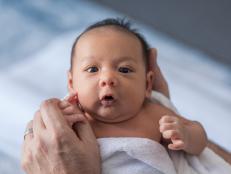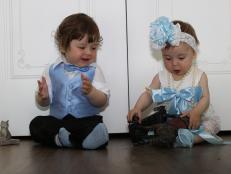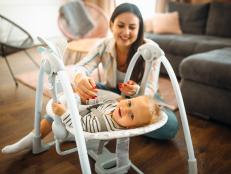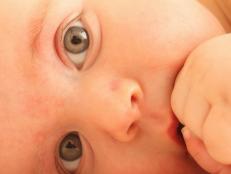Could Your Baby’s Personality Give Insight into Their Adult Personality? Study Says Yes
This study assessed babies across three decades of their lives.


Manuel Breva Colmeiro
If you’ve ever looked at your baby and wondered who they will grow up to be, there’s a good chance you already know. If your little one is silly, serious or shy, researchers say your baby’s personality today is a good indicator of what their adult personality will be.
According to a new study published by the National Institute of Health, a baby’s temperament and behavior can actually predict what their personality will be like in twenty years. After a test that was three decades long, researchers say babies who displayed behavioral inhibition (BI)–meaning they were cautious and fearful when exposed to unfamiliar people, objects and situations–became adults that were more reserved, introverted and less socially active.
For the study, researchers began assessing babies as young as four months old and assessed again at 14 months. They revisited the same group of children when they turned 15 years old and a final time when the participants turned 26. According to the study, researchers reviewed their “psychopathology, personality, social functioning, and education and employment outcomes.”
“Children show different behavioral styles very early in development,” lead author Alva Tang said. “Whether these behavior differences predict who children become as adults and how early we can foretell their life course patterns have been longstanding questions.”
For each age, the research process was very different. When the participants were toddlers, they were recorded while being exposed to three unfamiliar situations: being approached by a stranger, being placed in an unfamiliar playroom and being given a toy robot that was as tall as them.
When the children were 15, they completed a computer task while an electroencephalogram measured their brain activity whenever they entered incorrect answers.
Finally, as adults, they completed questionnaires that assessed their personality, mental health and social functioning.
According to the research, the participants who had BI at 14 months became adults who were “more reserved, had lower social functioning with friends and family and fewer romantic relationships over the past decade… Children with BI have been found to be at greater risk for developing social withdrawal and anxiety disorders than children without BI.”
So, what can parents do with this information? Researchers say this study can help parents better understand their children and their needs from a very early age. When parents see their children struggling with BI, they can help their kids overcome overcautiousness and fearfulness. This support can help kids form better relationships with friends, enjoy school and help them feel confident later in life.















